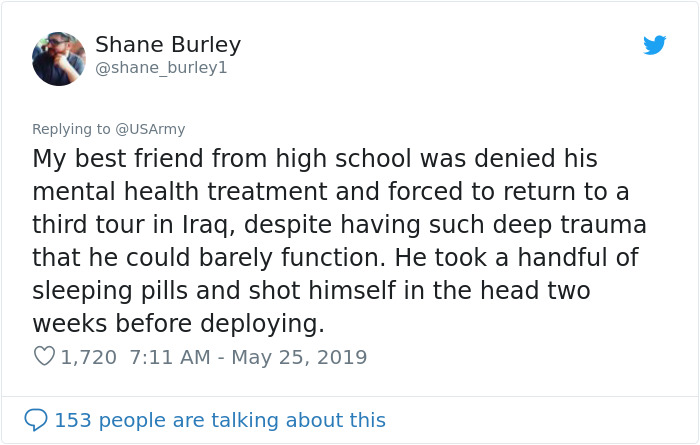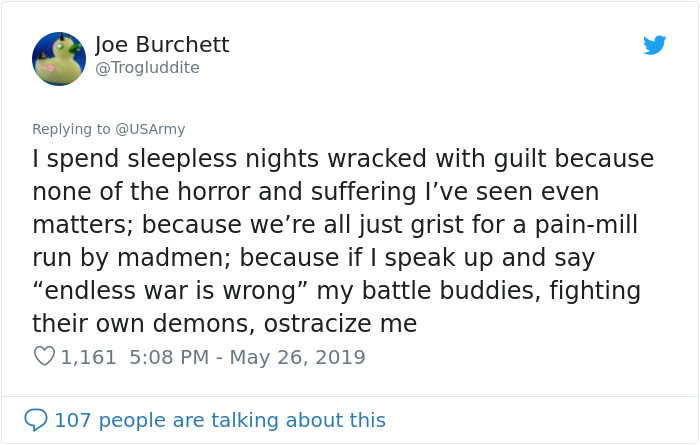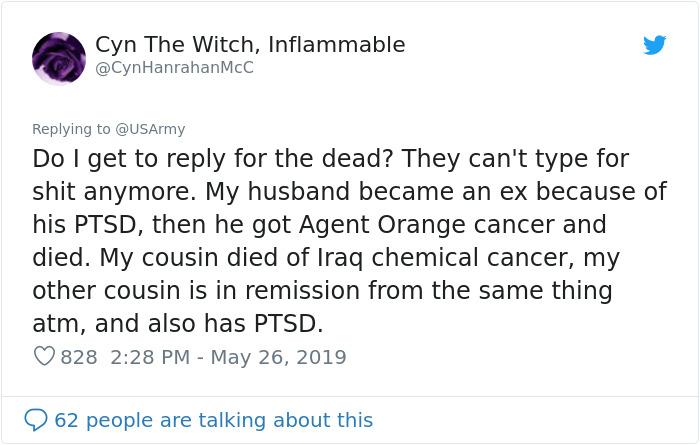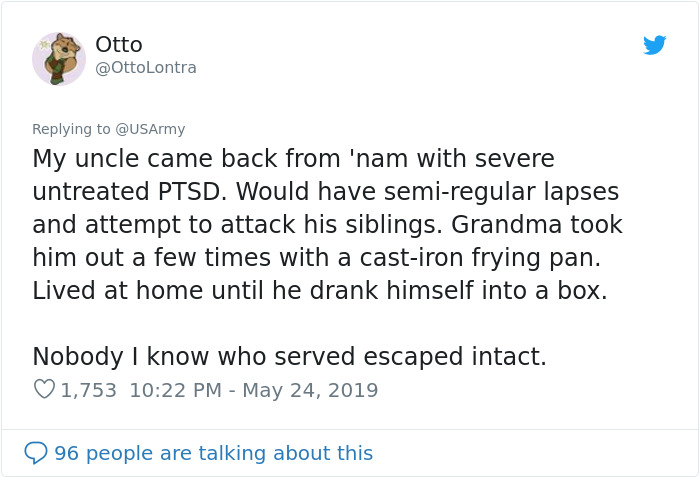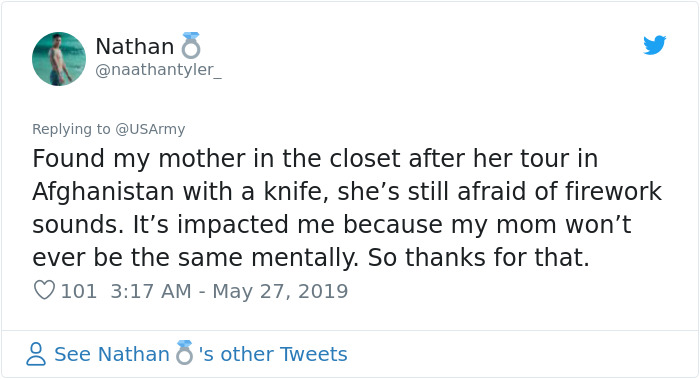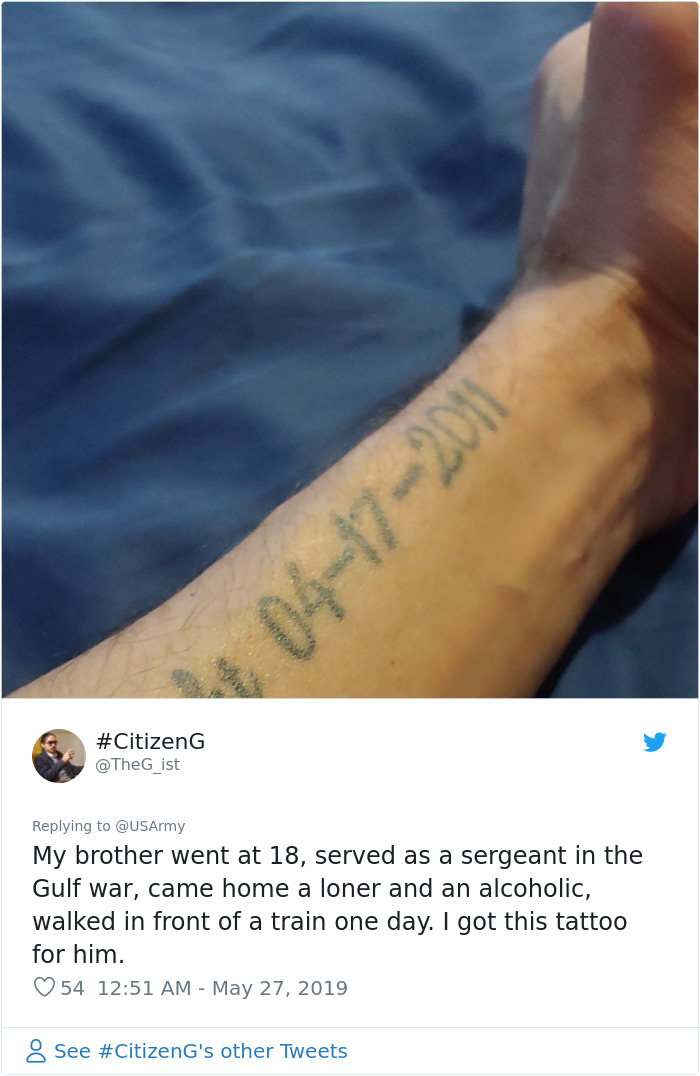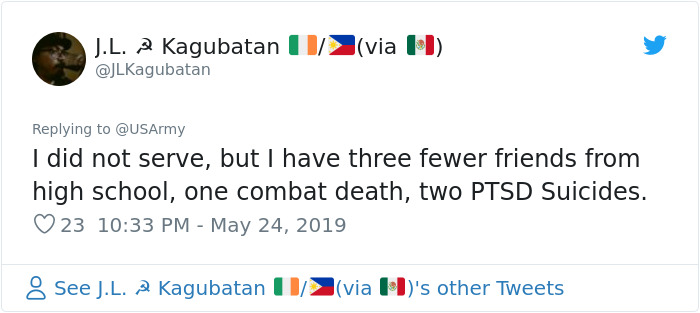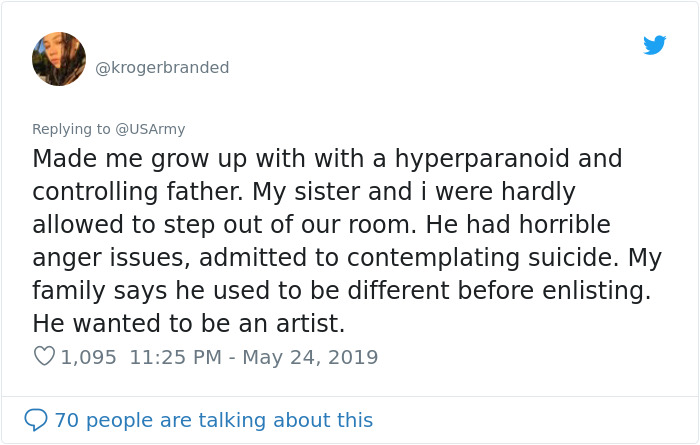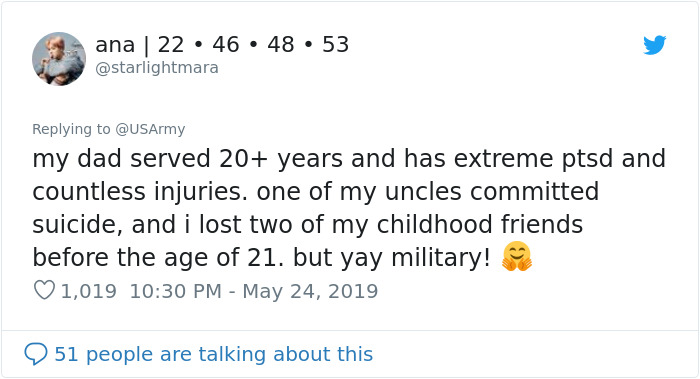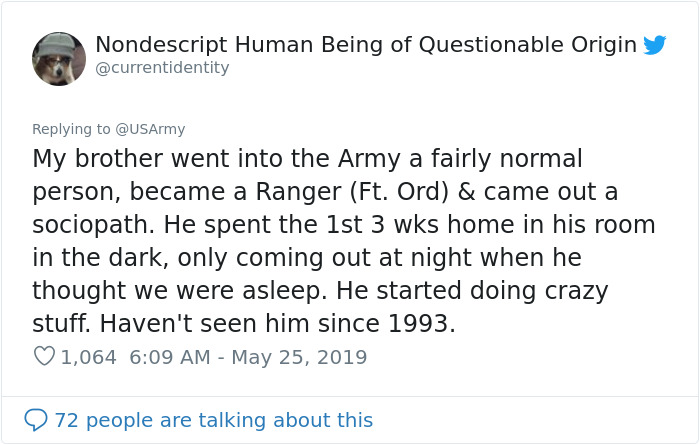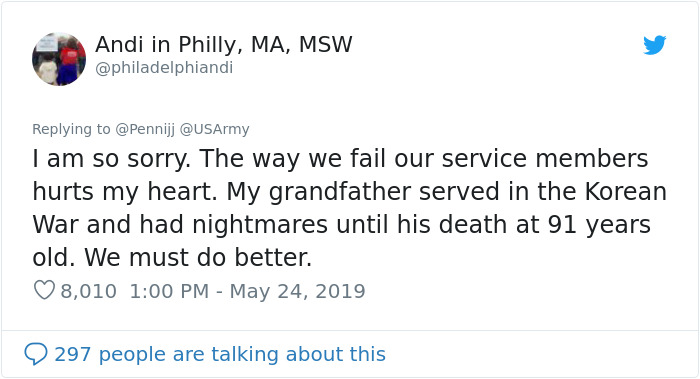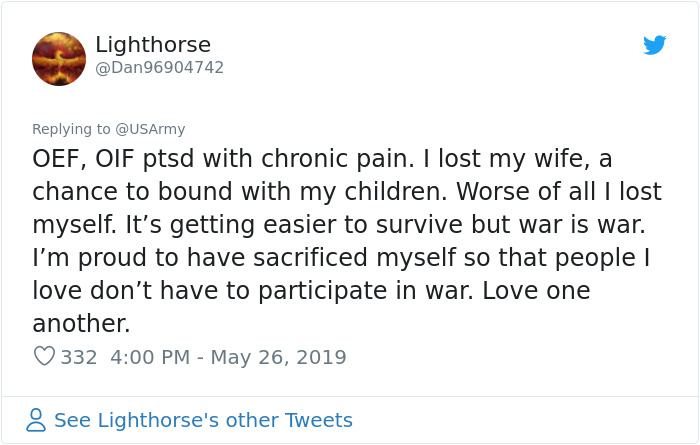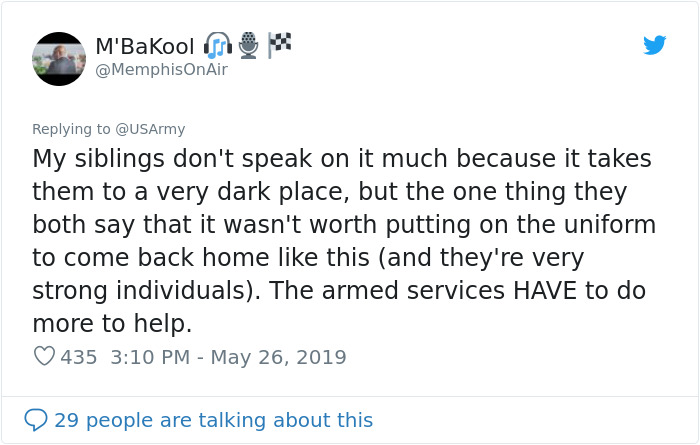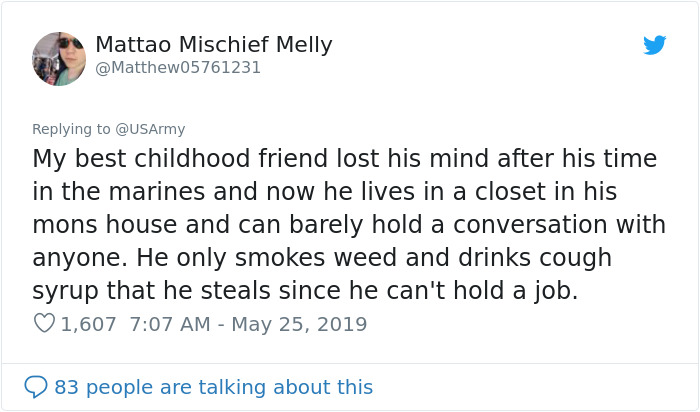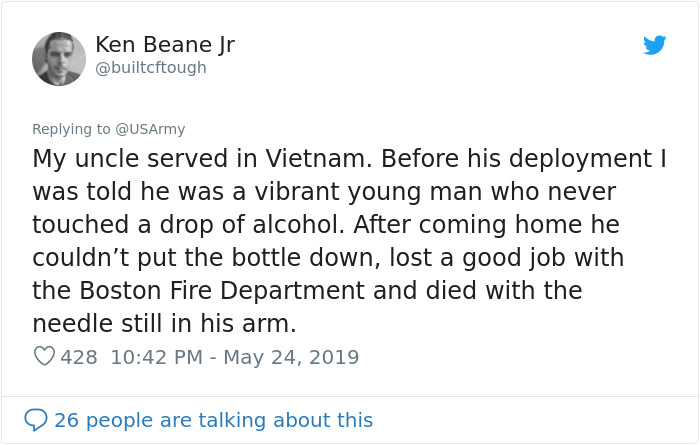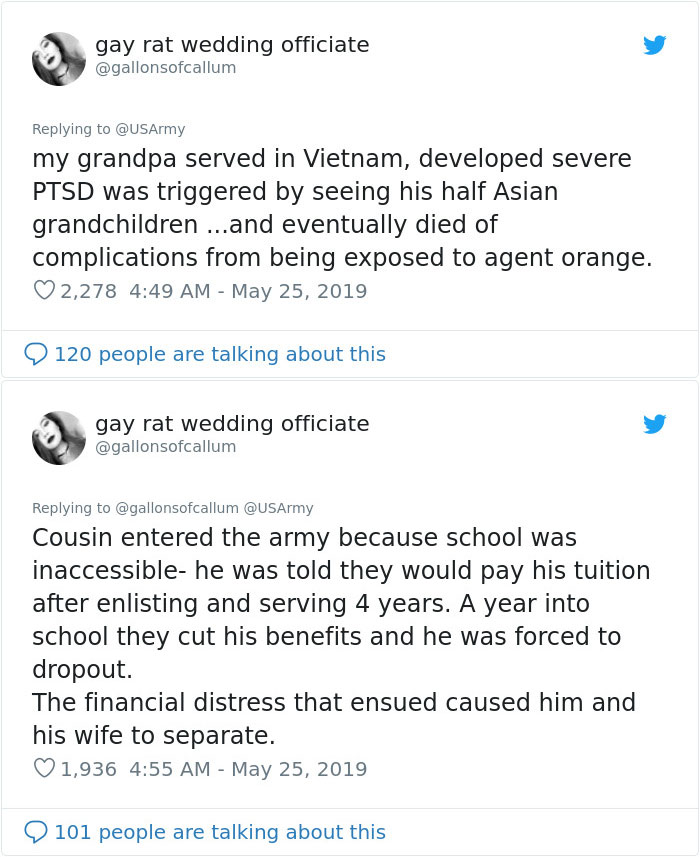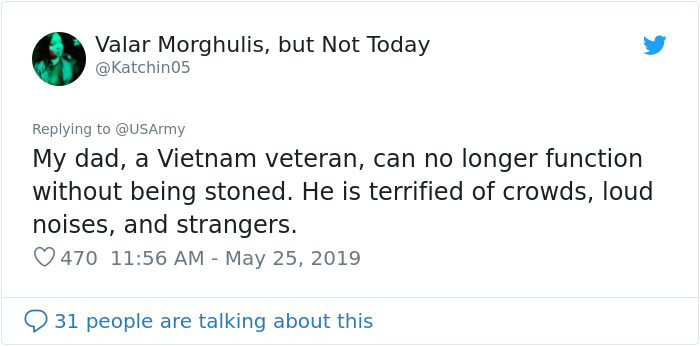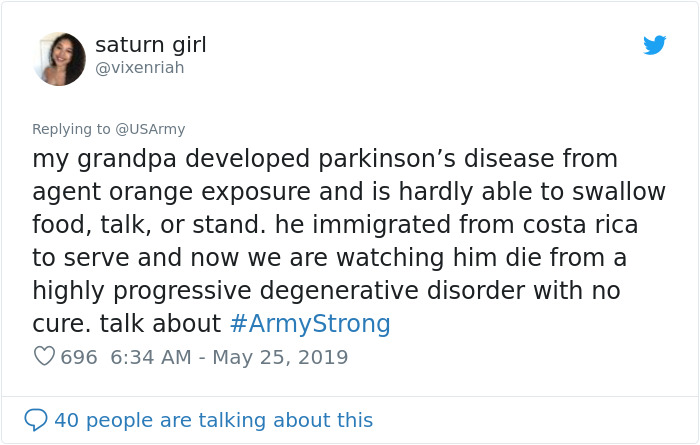from: https://www.boredpanda.com/usa-army-serving-stories-memorial-day/?utm_source=facebook&utm_medium=social&utm_campaign=organic
These 30 Responses To U.S. Army Asking ‘How Has Serving Impacted You?’ Was Not What They Were Expecting To Hear
Memorial Day weekend is meant to be a time of reflection to honor the Americans who have served, so two days before the weekend the U.S. Army reached out to veterans via Twitter to ask them to share how their service had impacted their lives – and it’s easy to say it backfired.
The innocent tweet was intended to stir up stories of patriotic pride, and while some did share positive experiences about how their time gave them self-confidence, an overwhelming amount shared dark and heartbreaking tales. The stories came from both veterans themselves and people who had met or were the family of service men and women. Tales ranged from vets who had returned with debilitating posttraumatic stress disorder, to those who had ended up committing suicide.
According to reports from the U.S. Department of Veteran Affairs, about 30% of Vietnam veterans, 12% of Gulf War veterans and 11% to 20% of Operations Iraqi Freedom and Enduring Freedom veterans are living with post-traumatic stress disorder. As for suicide rates the numbers are disproportionately affecting vets, with more than 6,000 veterans dying by suicide between 2008 to 2016 and an average of 20 veterans dying by suicide each day between 2013 and 2014.
The U.S Army reached out to vets on Twitter to ask how their service had impacted their lives

Image credits: USArmy
But instead of just patriotic pride, they received a thread of heartbreaking responses
#1
POST
Two years ago President Donald Trump tweeted “will not accept or allow transgender individuals to serve in any capacity,” and this year the policy has gone into effect. Lt. Col. Carla M. Gleason, a Pentagon spokesperson, told BuzzFeed News, that it was not a ban but that “new recruits will be rejected if they’ve undergone a gender transition, that they cannot transition while in service, and they must conform to the uniform and fitness standards of their birth sex.” The estimated number of trans people serving in the military ranged from 2,150 to 15,000.
#3
One out of three veterans seeking treatment for substance abuse, including alcohol use disorder, have PTSD. Overall about three-quarters of people who have survived abuse or violent trauma report that they struggle with alcohol abuse. People who struggle with PTSD and chronic pain struggle more frequently with alcohol abuse.
A study by the Substance Abuse and Mental Health Services Administration revealed that only 50 percent of returning vets who need veteran mental health treatment will receive these services. Both active duty service members and veterans face barriers to treatment for mental health issues: Personal embarrassment about service-related mental disabilities, long wait times to receive mental health treatment, shame over needing to seek mental health treatment, fear of being seen as weak, Stigma associated with mental health issues, a lack of understanding or lack of awareness about mental health problems and treatment options, logistical problems, such as long travel distances in order to receive this type of care, concerns over the veteran mental health treatment offered by the VA, demographic barriers and false perceptions based on these demographics such as age or gender.
From 1961 to 1971, the U.S. sprayed more than 20 million gallons of various herbicides over Vietnam, Cambodia and Laos and according to the EPA, Agent Orange, which contains the poisonous chemical dioxin, was the most commonly used. An estimated 2.8 million U.S. vets who were exposed to Agent Orange while on-duty later died.
#17
#18
#25
#26

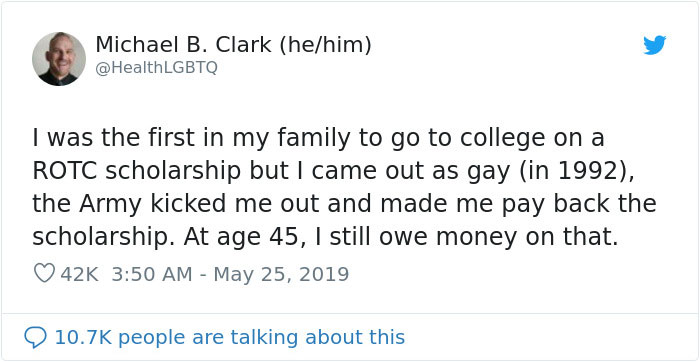
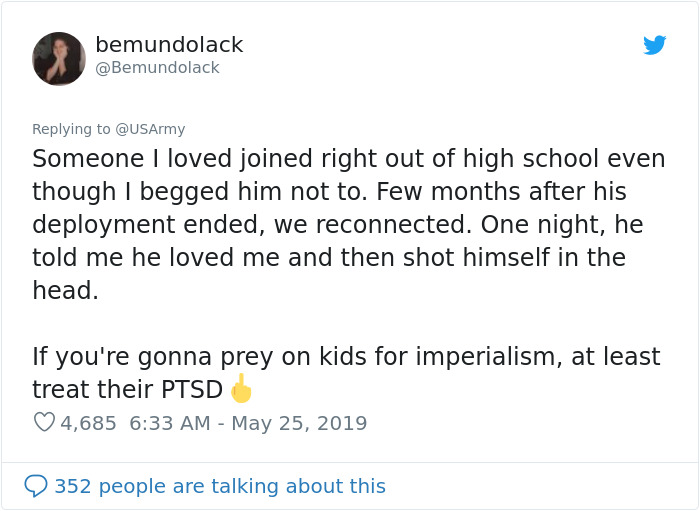
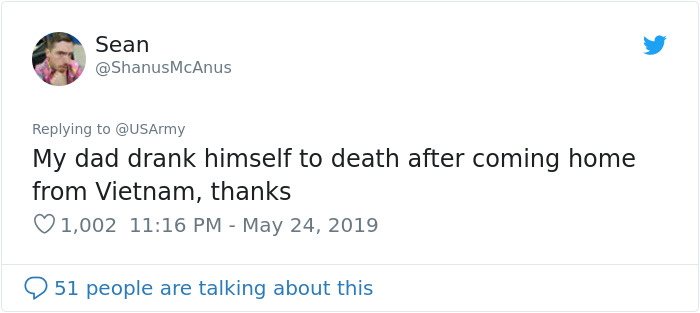
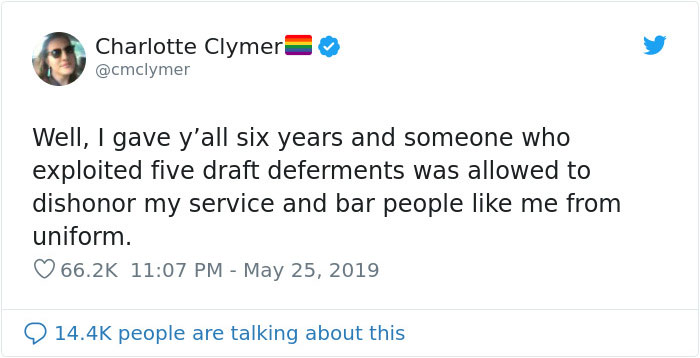
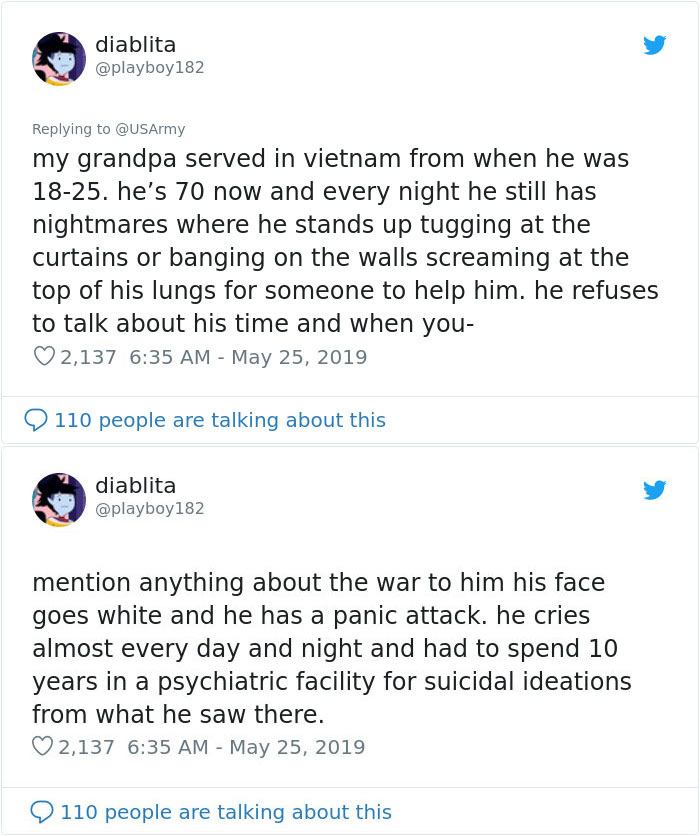


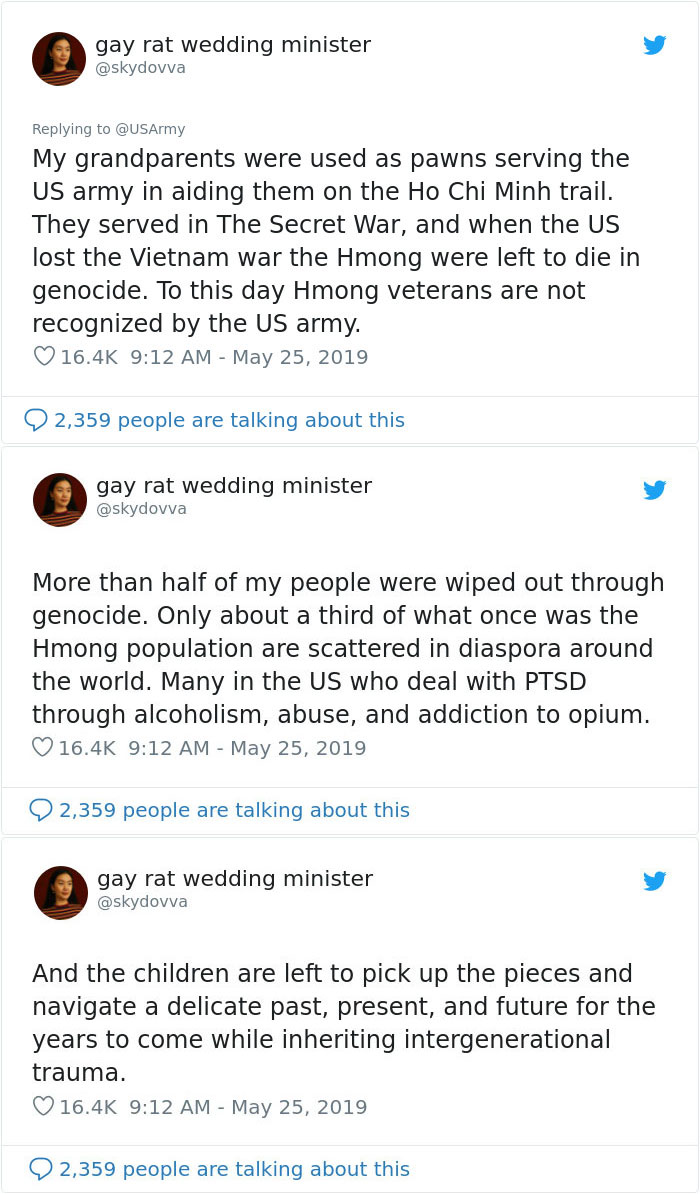
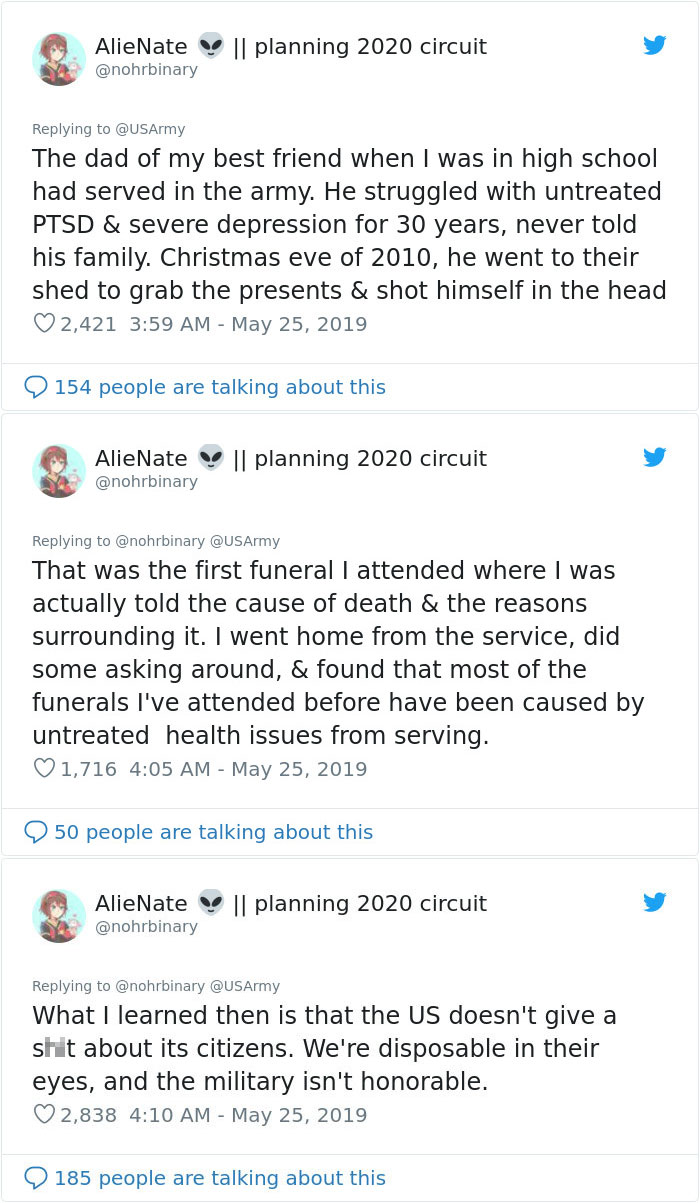
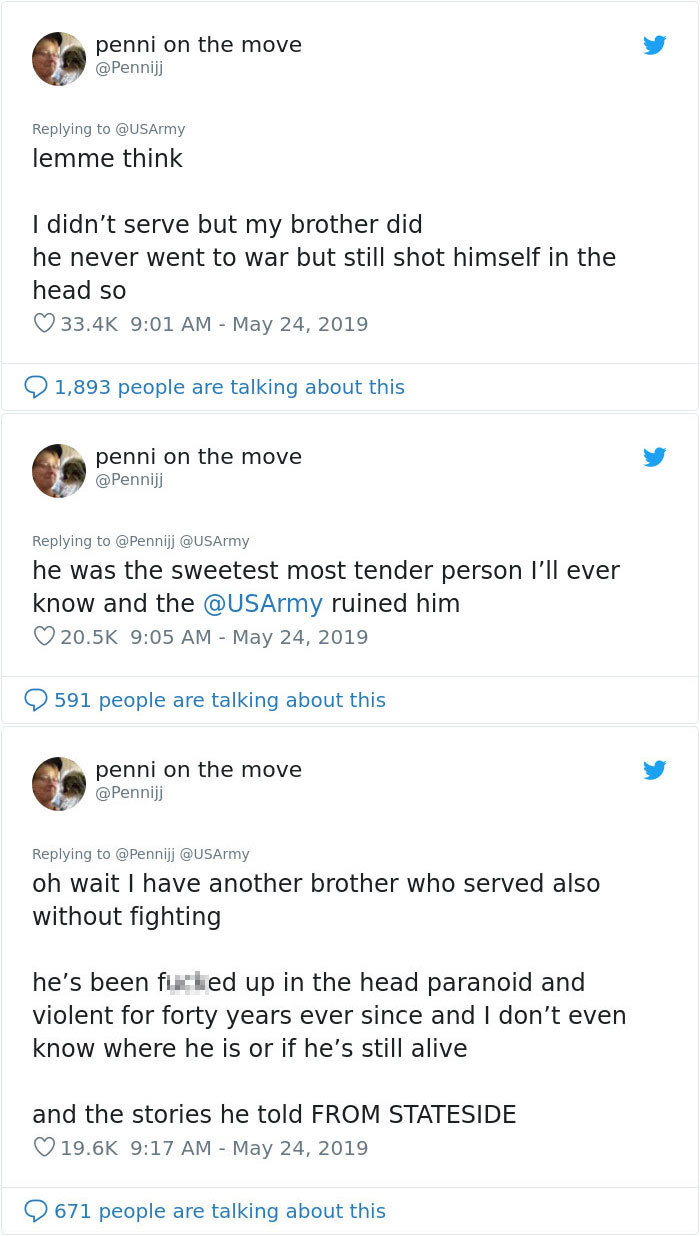
 " doesn't cut it. I died a little inside thinking of these two brothers. One dead, one the closest thing to death that isnt, because of military duty. A family ruined. What hit me hardest was "I don't know where he is or if he's still alive." I have two siblings and can't imagine anything like this, but I'm sure that they couldn't either, until it actually happened
" doesn't cut it. I died a little inside thinking of these two brothers. One dead, one the closest thing to death that isnt, because of military duty. A family ruined. What hit me hardest was "I don't know where he is or if he's still alive." I have two siblings and can't imagine anything like this, but I'm sure that they couldn't either, until it actually happened